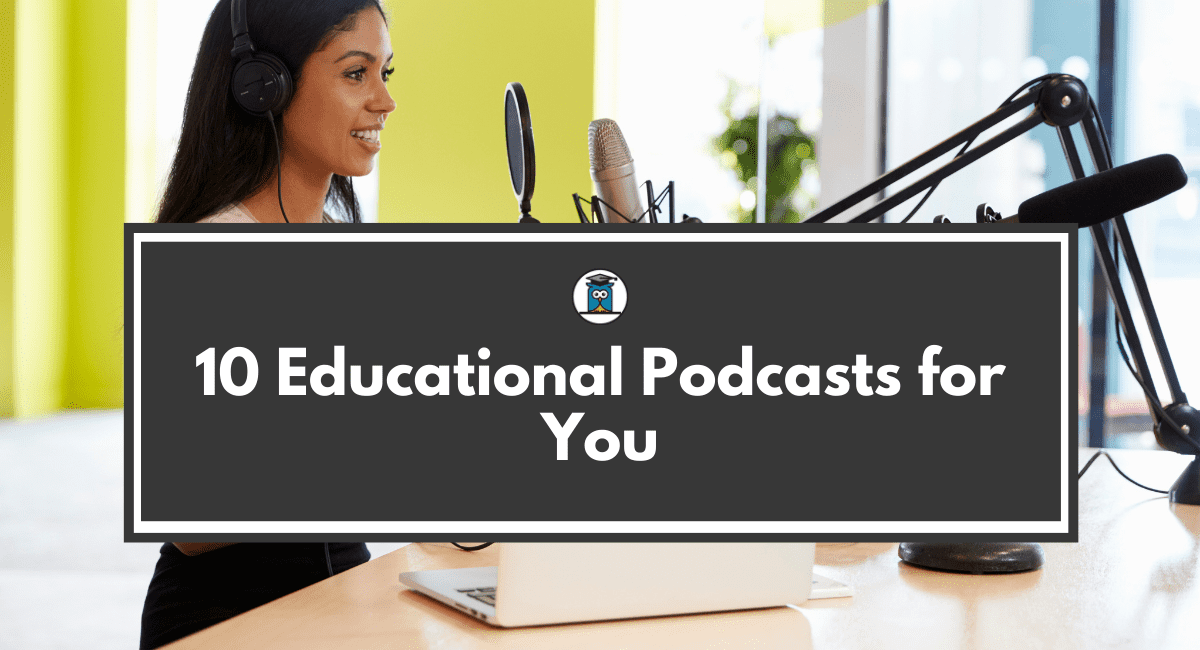A useful product of modern technology, podcasts are excellent learning tools for students and educators. There’s always a vast range of topics to choose from, you can listen to them on-the-go, and they can provide you with new knowledge in just a few minutes.
For educators, you can use podcasts to improve your online teaching game. For remote students and workers, consider implementing a podcast into your day to spice up online life.
If you’re getting tired of that hefty textbook, podcasts may just be perfect for getting out of a rut and learning through more engaging material.
1. Stuff You Should Know
Hosted by Josh Clark and Charles Bryant, Stuff You Should Know covers just about everything. If you’re looking for an educational podcast that goes beyond simple subjects—math, history, etc.—look no further.
The episodes are incredibly digestible, and the hosts can always make a lesson about something seemingly mundane—like ketchup—hilarious and informative. And you’ll come away with so many random fun facts!
2. Encyclopedia Womannica
Encyclopedia Womanica is essentially its title: an encyclopedia of women. This vignette series discusses extraordinary women throughout history while focusing on diverse cultures and experiences.
This podcast series will without a doubt teach you about an icon whose narrative may have been overlooked by more dominant narratives.
3. Climate Cast
This series features host Paul Huttner, Minnesota Public Radio’s chief Meteorologist. If you’re passionate about expanding your knowledge on climate change, Climate Cast might be your new favorite podcast.
Climate Cast often spotlights researchers, political figures, and scholars, who assist Huttner in comprehensively covering scientific topics, research, and developments.
4. 1619
With host Nikole Hannah-Jones, 1619 crafts episodes around the history and stories of slavery within the US. This series utilizes narratives, audio archives, and spoken word to offer listeners the tools and opportunity to learn about how the past affects the present and future.
5. The Argument
The Argument is one of many political podcasts that’s devoted to maintaining open—yet polarizing–discussion and debate.
Hosts columnist Ross Douthat, Michelle Goldberg, and David Leonhardt focus on a new topic each week and feature several different perspectives. This series highlights why it’s so important that we value disagreement—instead of running from it.
6. Bodies
Host Allison Behringer pairs the power of authentic storytelling with historical investigations into the continual failures to adequately study and cure female illnesses. Through delving into forces that have shaped women’s health outcomes, Bodies aims to highlight overlooked stories and answer incessant questions about women’s health.
7. You Are Not So Smart
In You Are Not So Smart, David McRaney focuses on reframing our perceptions on innately human characteristics—for example, overconfidence and irrationality. This is a great podcast for anyone looking to explore psychological concepts and probe into complex relationships between science and relevant human behaviors.
8. Overheard at National Geographic
Hosted by National Geographic senior editor Peter Gwin, this series provides an excellent medium for learning about all the random topics related to the planet that you may never think to explore otherwise.
Essentially, the aim of Overheard at National Geographic is to allow listeners to have a behind-the-scenes look at the National Geographic headquarters. Moreover, the series highlights National Geographic’s fantastic network of scientists, explorers, and storytellers.
9. Grammar Girl: Quick and Dirty Tips
Grammar struggles, anyone? Featuring the “Grammar Girl”, Mignon Fogarty, this is your 101 guide to all things grammar. Grammar Girl is appropriate for everyone, from beginners to novices to expert grammar-ites. Mignon Fogarty covers everything, and does it with humor. Plus, she provides pop quizzes, simple tips, and memory tricks.
10. The Secret History of the Future
In The Secret History of the Future, Tom Standage and Seth Stevenson encourage listeners to understand the past in order to grasp the present and anticipate the future.
This series explores the ways in which the past and present connect. Specifically, it discusses and analyzes technology’s impact throughout history. Furthermore, in an effort to educate listeners and help them avoid future dangers, Standage and Stevenson draw on our reactions to certain technological innovations throughout history.
Author: Lydia Schapiro








